Intergalacticnerd - Space N Shit
More Posts from Intergalacticnerd and Others

Infant Star’s Artistic Outburst
The artistic outburst of an extremely young star, in the earliest phase of formation, is captured in this spectacular image from the NASA/ESA Hubble Space Telescope. The colourful wisps, found in the lower left of the image, are painted onto the sky by a young star cocooned in the partially illuminated cloud of obscuring dust seen to the upper right.
Pictured punching through the enshrouding dust is an extremely hot, blue jet of gas released by the young star. As this jet speeds through space, it collides with cooler surrounding material. The result is the colourful object to the lower left, produced as the cooler material is heated by the jet (opo9524a, potw1307a).
This wispy object is known as HH34 and it is an example of a Herbig–Haro (HH) object. It resides approximately 1400 light-years away near the Orion Nebula, a large star formation region within the Milky Way. HH objects exist for a cosmically brief time — typically thousands of years — with changes seen in observations taken only a few years apart (heic1113).
Credit: ESA/Hubble & NASA

SN 1006 Supernova Remnant by NASA, ESA and Zolt Levay
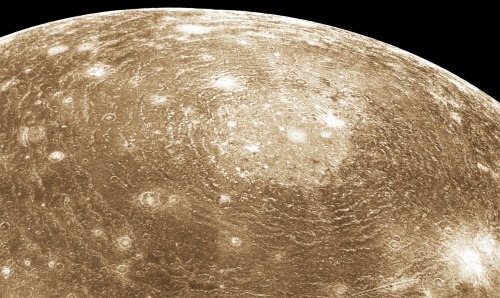
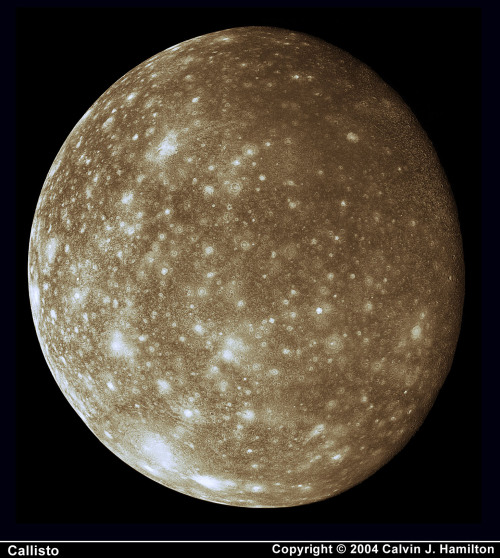
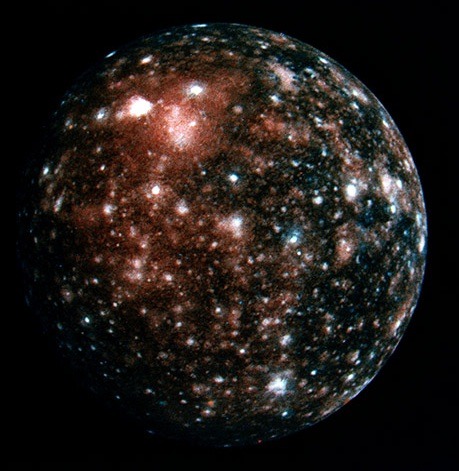

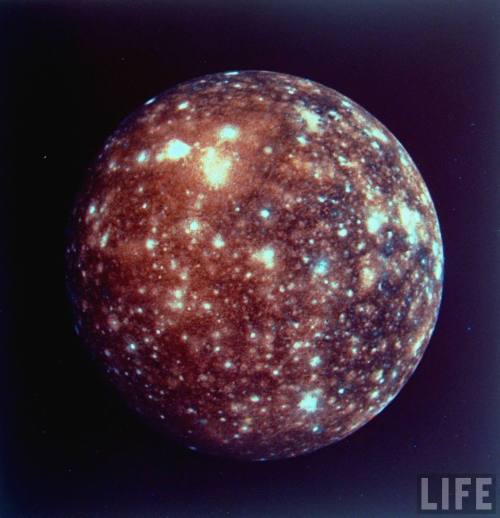
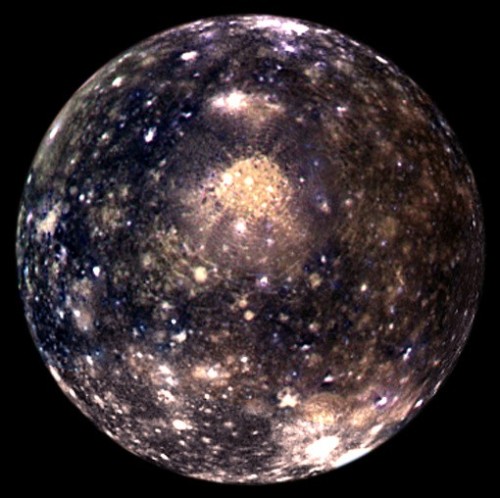

Jupiter’s moon, Callisto.
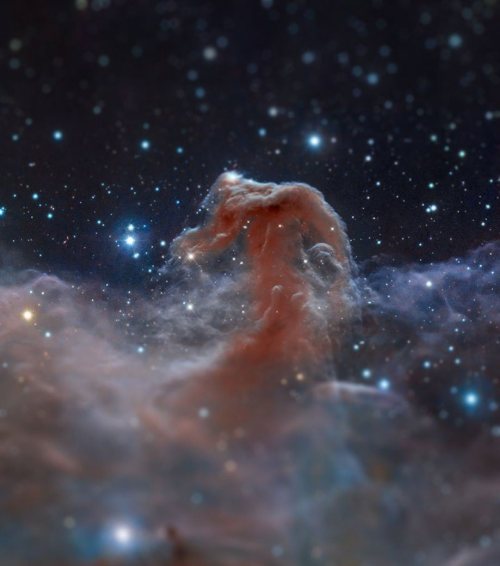
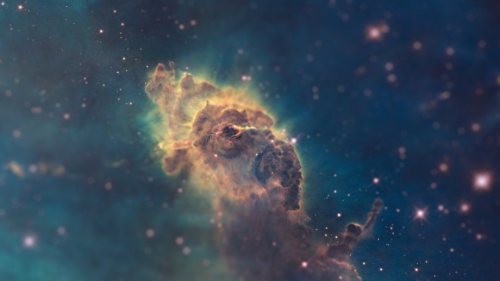
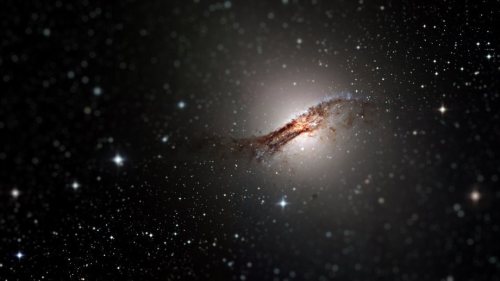
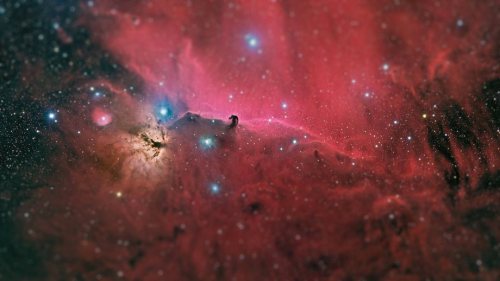
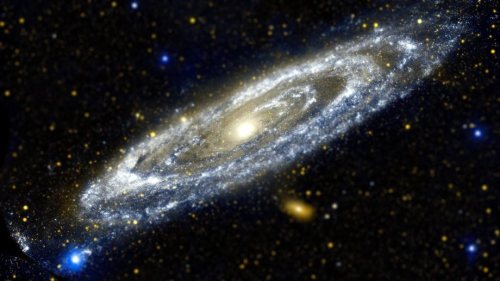
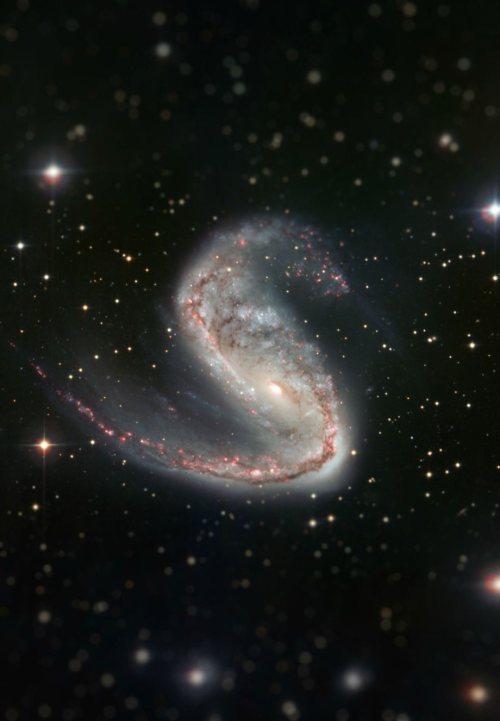
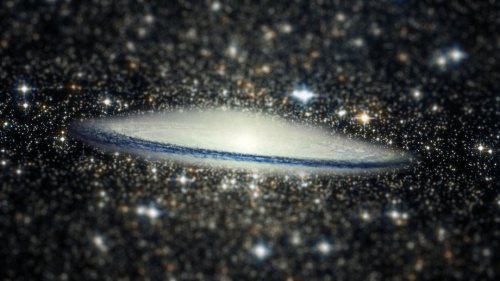
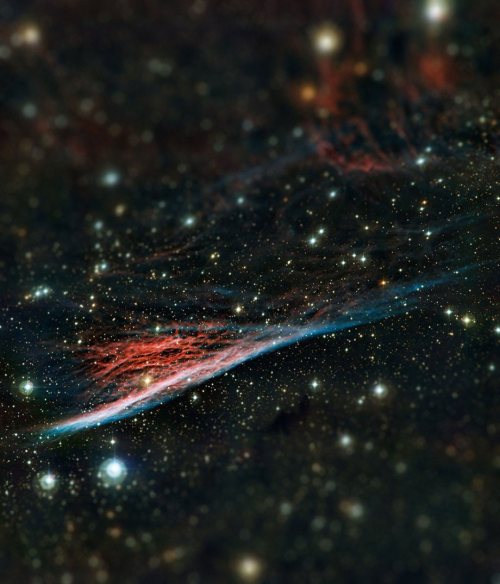

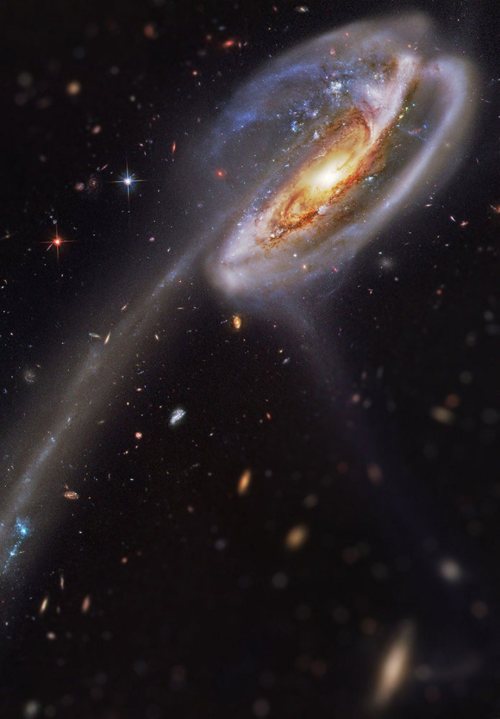
Tilt Shift filters applied to Hubble Space Telescope photos.
Tilt Shift filters make the foreground and background of images more blurred, changing the depth of field of these images.
(x)
[Click for more interesting science facts and gifs]

Thankful for views like this one —————————————– Camera Info •Canon 5D Mk3 •Canon 16-35mm F2.8 •16mm •F2.8 Aperture •30" Exposure •6400 ISO •WB3785 —————————————–#justinhartney #nature #pnwwonderland #nightphotography #ThatPNWLife #Ourlonelyplanet #traveloregon #eugene #universityoforegon #uoregon #feedbacknation #thatNWadventure #wildernessculture #modernoutdoors #watchthisinstagood #folkmagazine #theearthoutdoors #thevisualcollective #oregonexplored #beautifuldestinations #nwc10k #vsco #wishyouwerenorthwest #visitbend #1859Oregon #canon_photos #llbeanmoment #bendmag #optoutside #columbia1938 (at Bend, Oregon)
Solar System: Things to Know This Week
Here are a few things you should know about our solar system this week:
1. Gearing Up for a Grand Finale

There’s just a year left until the Cassini mission begins its Grand Finale – the final phase of its mission, during which the spacecraft will dive repeatedly between the planet and the rings. To get ready, the Cassini team has launched an enhanced, mobile device-friendly version of the mission website. The site includes information about Cassini, Saturn, the moons and the rings – but it also tells the human stories behind one of the most ambitions expeditions of all time.
2.Caught in Transit

On Monday, May 9, the planet Mercury will cross directly in front of the sun, an event that hasn’t occurred since 2006 and won’t happen again until 2019. Find out how to watch HERE.
3. A Moon for Makemake

Our Hubble Space Telescope has spotted a small, dark moon orbiting Makemake (pronounced “MAH-kay MAH-kay). Make make is the second brightest icy dwarf planet – after Pluto – in the faraway Kuiper Belt.
4. The Age of the Aquarids

The Eta Aquarid meteor shower is the first of two showers that occur each year as a result of Earth passing through dust released by Halley’s Comet. This year, it should peak on the night of May 5/6. Get tips for watching HERE.
5. The Southern Lights of Saturn

On May 4, Cassini will reach periapse, the closest point to Saturn in the spacecraft’s orbit. At about this time, Cassini’s cameras will monitor Saturn’s south polar aurorae, and also image the bright limb of the planet to better understand its upper haze layers.
Want to learn more? Read our full list of the 10 things to know this week about the solar system HERE.
Make sure to follow us on Tumblr for your regular dose of space: http://nasa.tumblr.com

Psychedelic Pluto : New Horizons scientists made this false color image of Pluto using a technique called principal component analysis to highlight the many subtle color differences between Plutos distinct regions.
js

M3 is Astronomy Magazine Picture of the Day
-
 paleba12nanchor liked this · 3 months ago
paleba12nanchor liked this · 3 months ago -
 kitty-00000 liked this · 4 months ago
kitty-00000 liked this · 4 months ago -
 annita89zo9gwblyh liked this · 6 months ago
annita89zo9gwblyh liked this · 6 months ago -
 anna0vu7g liked this · 6 months ago
anna0vu7g liked this · 6 months ago -
 genonnoisseurpirate149 liked this · 10 months ago
genonnoisseurpirate149 liked this · 10 months ago -
 grendallmayo reblogged this · 1 year ago
grendallmayo reblogged this · 1 year ago -
 thebewilderer liked this · 1 year ago
thebewilderer liked this · 1 year ago -
 last-knight-who-was liked this · 1 year ago
last-knight-who-was liked this · 1 year ago -
 glamurina-vibes reblogged this · 1 year ago
glamurina-vibes reblogged this · 1 year ago -
 glamurina-vibes liked this · 1 year ago
glamurina-vibes liked this · 1 year ago -
 werewolf-cuddles reblogged this · 1 year ago
werewolf-cuddles reblogged this · 1 year ago -
 scofieldshumway liked this · 1 year ago
scofieldshumway liked this · 1 year ago -
 encyclopediavirginia liked this · 1 year ago
encyclopediavirginia liked this · 1 year ago -
 foxbodymustangs liked this · 1 year ago
foxbodymustangs liked this · 1 year ago -
 newkenabdopinp liked this · 1 year ago
newkenabdopinp liked this · 1 year ago -
 kannoaya liked this · 1 year ago
kannoaya liked this · 1 year ago -
 blue-eyed-boss liked this · 1 year ago
blue-eyed-boss liked this · 1 year ago -
 subsdimdipal liked this · 1 year ago
subsdimdipal liked this · 1 year ago -
 oharadrei liked this · 1 year ago
oharadrei liked this · 1 year ago -
 adhdcoolatta reblogged this · 1 year ago
adhdcoolatta reblogged this · 1 year ago -
 stuck-in-the-ghost-zone reblogged this · 1 year ago
stuck-in-the-ghost-zone reblogged this · 1 year ago -
 stuck-in-the-ghost-zone liked this · 1 year ago
stuck-in-the-ghost-zone liked this · 1 year ago -
 yuiaddpower reblogged this · 1 year ago
yuiaddpower reblogged this · 1 year ago -
 censosrpg liked this · 1 year ago
censosrpg liked this · 1 year ago -
 nithilams liked this · 1 year ago
nithilams liked this · 1 year ago
"Astronomy compels the soul to look upwards and leads us from this world to another." - Plato
147 posts










